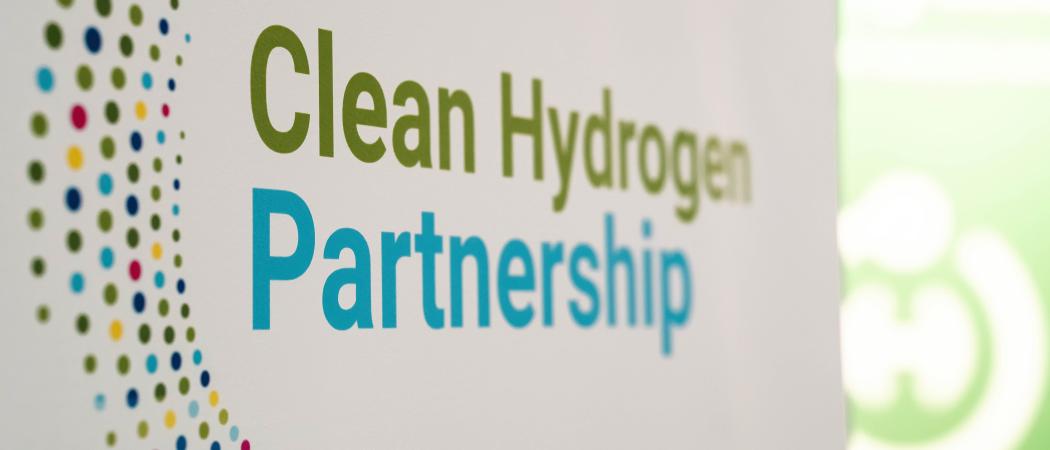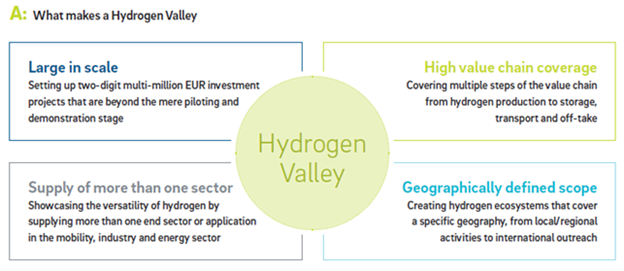To enable Europe to achieve climate neutrality by 2050, the Clean Hydrogen Partnership is focused on rapid scaling of hydrogen technology

A new wave of innovation could propel Europe to the forefront of the global clean energy race. By harnessing the power of collaboration, the Clean Hydrogen Partnership is accelerating the development of hydrogen solutions that could reshape industries and unlock new economic opportunities.
The Clean Hydrogen Partnership brings together the European Commission, industry leaders, small and medium enterprises (SMEs) and research institutions. With over €1.63 billion in funding since 2008, the Partnership has driven advancements in hydrogen production, storage, distribution and end-use applications. "Through this public private partnership, we have created an unprecedented ecosystem of cooperation," says Valérie Bouillon-Delporte, executive director of the Clean Hydrogen Partnership. "It’s about more than technology - it's about creating a sustainable future."
Hydrogen Valleys: Europe’s green ecosystems
One of the Partnership's crowning achievements is the creation of 16 “Hydrogen Valleys” across 15 European Union (EU) Member States. These are integrated ecosystems where hydrogen is produced, distributed and used locally, with the purpose of achieving scalability and commercial viability. Through REPowerEU, the EU’s plan to reduce the bloc’s dependence on Russian fossil fuel imports, the partnership received an additional €200 million funding to double the number of Hydrogen Valleys by 2025.
The Trieres Hydrogen Valley in Greece, recognised at the 7th edition of the Clean Hydrogen Partnership Awards in Brussels, highlights the valleys strategy’s success. Aiming to produce 2,410 tonnes of green hydrogen annually for road and maritime transport, industry and energy, Triērēs exemplifies how green hydrogen can be woven into multiple sectors through strategic collaboration with local and regional governments, public and private companies, research and academia excellence.
“The Hydrogen Valleys demonstrate how clean hydrogen can be the backbone of a sustainable energy system,” adds Bouillon-Delporte. “By creating these hubs, we foster regional synergies, support industry decarbonisation, and bring Europe closer to climate neutrality.”

Fostering innovation across industries
At the heart of the Partnership’s activities is its commitment to showcasing and celebrating innovation. From portable hydrogen generators to hydrogen-powered rail systems, the Partnership’s projects span diverse sectors, each pushing the boundaries of what hydrogen can achieve.
The European Hydrogen Week, held from 19 to 22 November 2024, brought together stakeholders from across the hydrogen value chain. The event also featured the Clean Hydrogen Partnership Awards. The FCH2RAIL project, awarded Best Innovation, is transforming rail transport by retrofitting diesel trains to run on hydrogen, reducing emissions and enhancing energy efficiency. The EVERYWH2ERE project, winner of this year’s Best Success Story Award, has developed transportable generators that replace their diesel counterparts. Other successful projects were FLAGSHIPS, which retrofitted hydrogen-powered barges for zero-emission transport, and Triērēs Valley in Greece, which integrates hydrogen into road and maritime transport. In addition, the Women in Hydrogen Innovation Award was introduced this year, to encourage the participation of more women engineers and scientists in the development of clean hydrogen technologies.
“These awards highlight the transformative potential of hydrogen and the incredible progress we’ve made,” Bouillon-Delporte remarks. “But they also remind us of the work ahead as we scale these innovations for widespread adoption.”
Looking ahead: The 2025 vision
With an indicative budget of €184.5 million for its next call for proposals to be published in January 2025, the Partnership is poised to support groundbreaking projects in renewable hydrogen production, distribution and storage.
But “our work is about more than funding projects,” notes Mirela Atanasiu, head of operations and communication. “It’s about building a sustainable hydrogen ecosystem that supports Europe’s energy independence, decarbonisation goals, and technological leadership.”
The Partnership’s recently published study on Sustainable Supply Chain and Industrialisation of Hydrogen Technologies sheds light on the challenges and opportunities in building a robust hydrogen ecosystem. It emphasises the need for significant investments across the value chain, from R&D to infrastructure and market development.
“The Clean Hydrogen Partnership mitigates the risks associated with these investments,” explains Bouillon-Delporte. “We provide a platform for public-private collaboration, ensuring that Europe leads the global hydrogen transition.”
The Clean Hydrogen Partnership looks to embody Europe’s commitment to a green energy future. By fostering collaboration, driving innovation and tackling market challenges, it is paving the way for hydrogen to become central to the European energy system. For industries, researchers, and policymakers alike, the Partnership aims to be a powerful ally in achieving climate neutrality and securing Europe’s place as a leader in clean energy technologies.





 A unique international forum for public research organisations and companies to connect their external engagement with strategic interests around their R&D system.
A unique international forum for public research organisations and companies to connect their external engagement with strategic interests around their R&D system.